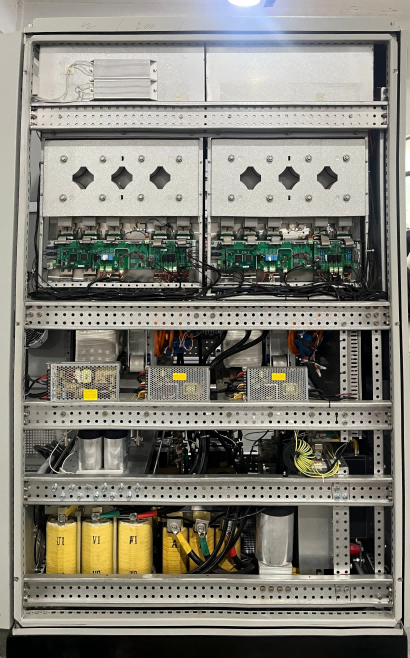burim programues rrëndi ac
Burimi i rradhës së trajtë në AC është një pajisje elektronike e mbrabshme që lind form të sakta të ndryshme të trajtës me parametra rregullueshme. Ky pajisje sofistikuar lejon përdoruesve të kontrollojnë karakteristikat e ndryshme të outputit, përfshi shërbinë, frekuenca, këndin faza dhe formën e trajtës. Largohet përmes teknologjisë për procesim digital të signalit, duke e konvertuar energjinë DC në outpute AC me akuracijë dhe stabilitet të larg. Pajisja zakonisht ka një ndërfaqe përdoruesi të lehtë për përdorim të dorës dhe programim të larg nga protokollat e standard të komunikimit. Në ambientet laboratoriale, vepron si një mjete e thelbëshme për provimin e komponenteve elektronike, kalibrimin e pajisjeve dhe zgjerimin e eksperimenteve të rëndomt. Aplikimet industriale përfshijnë provimin e burimeve të energjise, provimin e motorëve dhe procedurat e kontrollit të kualitetit. Burimi mund të lind output të njëfazh dhe tre fazh, duke u bërthyer për ndonjë scenario të provimit. Burimet moderne të rradhës së trajtë në AC përmbajnë veçori për mbrojtje kundër rradhit të larg, voltagje të larg dhe ngadalt termik, sigurojot operacion të sigurt dhe mbrojtjen e pajisjeve. Ata shpesh përfshijnë aftësi për regjistrim të të dhënave, lejonte përdoruesve të regjistrojnë dhe të analizojnë rezultatet e provimit për dokumentim dhe qëllime të pjesëmarrjes. Akuraciteta dhe përkushti i këtyre pajisjeve bën ato të mos lejshme në sektorë si prodhim elektronik, kërkim energji rinas dhe instalime testimi aero-kosmike.




